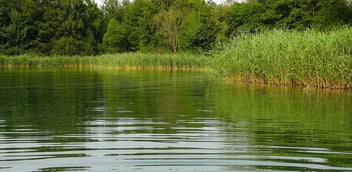Victorian water quality concerns arise following deluge
The Victorian Environment Protection Authority (EPA) has identified water quality concerns over the state’s waters, following recent heavy downpours that could have resulted in water contamination.
According to the EPA, this could see the closure of many beaches around Port Phillip Bay this summer.
Last year, heavy rain flushed faecal contaminants into the bay, causing the closure of many popular swimming spots due to an increased risk of gastro.
EPA Chief Environmental Scientist Dr Andrea Hinwood told the Herald Sun the closures could happen again this summer, in light of increased and heavy rainfall predicted across the region.
“Just because we measure elevated levels of microorganisms does not mean that every swimmer will get ill,” Hinwood said.
“But it is a relative risk so we recommend that if the rating is poor then you don’t swim at that beach. After a big weather event, we recommend not to swim for up to 48 hours.”
The EPA tests faecal contamination, water clarity, pH levels, as well as other measures, to determine the safety of swimming.
Hinwood said EPA would do quantitative risk assessments on microbial contamination over the next six months in order to determine which pathogens are dangerous to swimmers.
“Some may cause harm for human health while others may not,” she said.
Results from last year’s testing, which assessed water quality at 36 different beaches, showed that swimming outside of the Melbourne is deemed safest.
Water-quality testing around Geelong, including the Dell, Easter, Portarlington and St Leonards, ranked highest, with Half Moon Bay, Blairgowrie and Mt Martha also ranking highly.
Water conditions at beaches in Brighton, Elwood and Beaumaris were worse than at Altona, with Frankston, Werribee South, Port Melbourne and St Kilda ranking at the bottom of the water-quality table.
Sydneysiders too, have been warned of possible water pollution, with the NSW Government’s monitoring service Beachwatch saying recent heavy rainfall has resulted in bacterial contamination threats.
"Rainfall is the major driver of pollution to recreational waters, generating stormwater runoff," the spokeswoman told the Sydney Morning Herald.
Bronte and Coogee beaches are said to be the worst affected, with warnings for possible water pollution in beaches including Bondi, Little Bay, North Curl Curl, Freshwater, Shelly (Manly), North and South Cronulla, and Oak Park.

